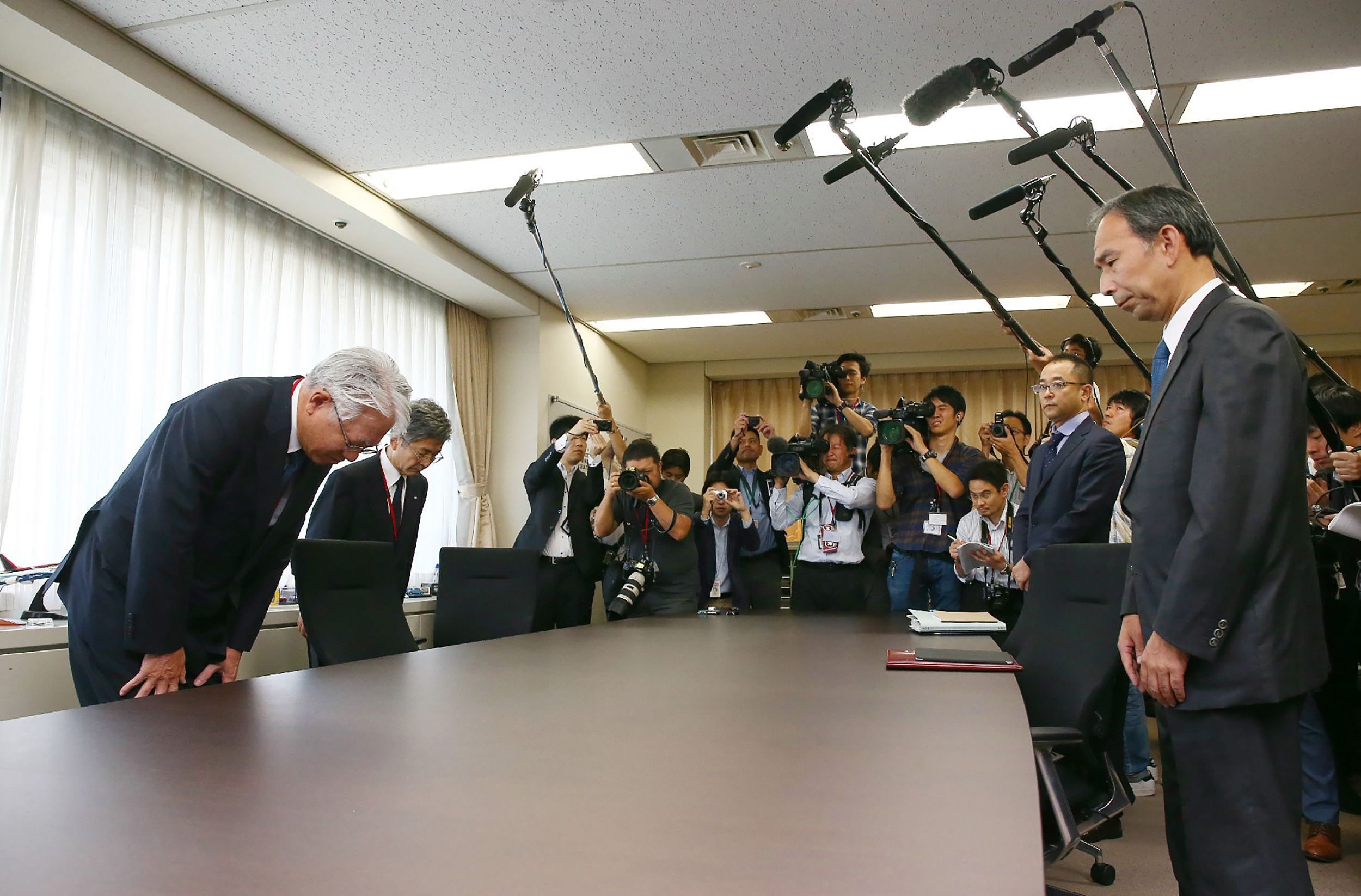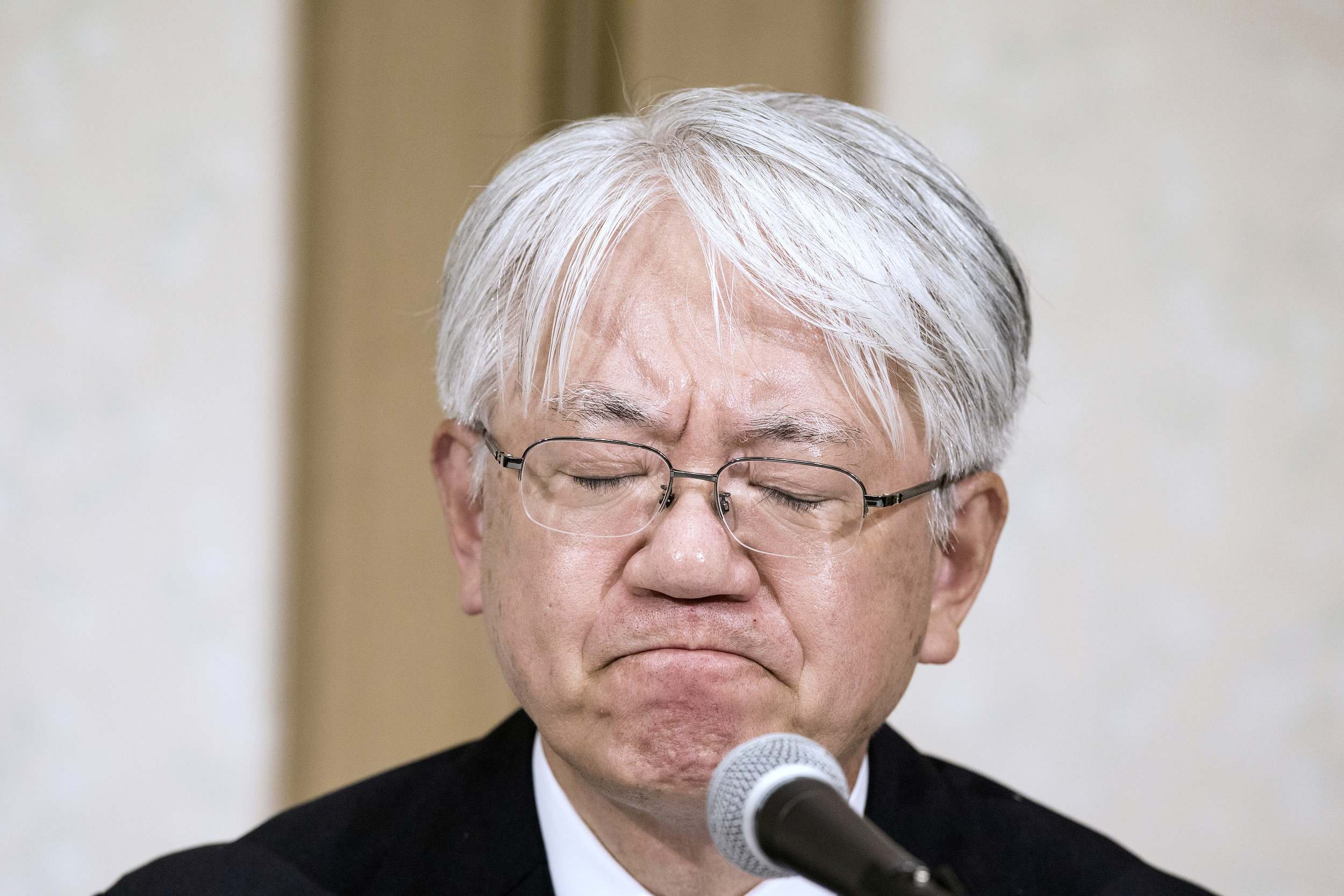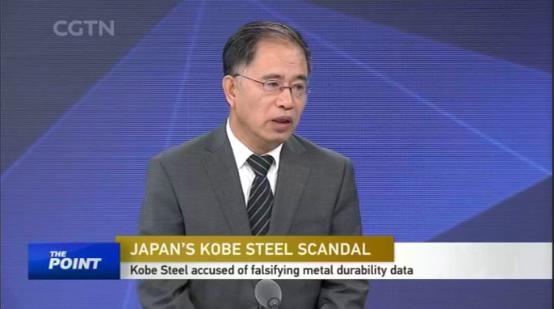
17:56, 28-Feb-2019
Kobe Steel scandal tarnishes ‘Made in Japan’ brand

That’s an indication of the loss of professional dedication and also ethical integrity for all the business partners along their value chain, said Liu Baocheng, Director of the Center for International Business Ethics at the University of International Business and Economics.
His comments come as the brand "Made in Japan", once a byword for quality, has taken a hard knock in light of the recent scandal surrounding Kobe Steel.
"Consumers and industrial buyers are really beginning to lose their confidence," he said.

Hiroya Kawasaki, president and CEO of Kobe Steel Ltd., pauses as he speaks during a news conference in Tokyo, Japan, Friday, Oct. 13, 2017. /Photographer: Shiho Fukada/Bloomberg via Getty Images
Hiroya Kawasaki, president and CEO of Kobe Steel Ltd., pauses as he speaks during a news conference in Tokyo, Japan, Friday, Oct. 13, 2017. /Photographer: Shiho Fukada/Bloomberg via Getty Images
Kobe, one of Japan’s largest steel producers with customers across the globe, has admitted to falsifying data on some of its products used in a variety of sectors.
The company revealed that some aluminum and copper products shipped from September 2016 to August 2017 were falsely labeled as meeting the specifications requested by customers.The falsified data has affected more than 500 manufacturers around the world.
Liu thought the scandal reflected a lack of governance in the country's corporate sector.

Liu Baocheng, Director of the Center for International Business Ethics at the University of International Business & Economics / CGTN Screenshot
Liu Baocheng, Director of the Center for International Business Ethics at the University of International Business & Economics / CGTN Screenshot
"I think that’s also a warning to the Japanese government and industry in general to really take quick measures to revive this industry and remove the bad records that are there to continually hurt Japanese industry," he added.
He suggested that Kobe Steel deal with their clients carefully and work with partners to tackle the problem.
SITEMAP
Copyright © 2018 CGTN. Beijing ICP prepared NO.16065310-3
Copyright © 2018 CGTN. Beijing ICP prepared NO.16065310-3